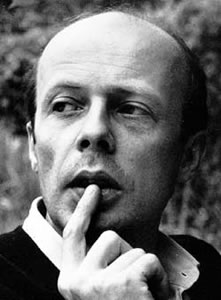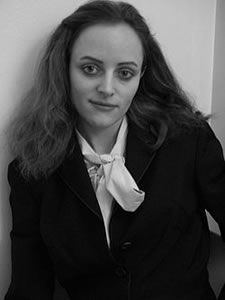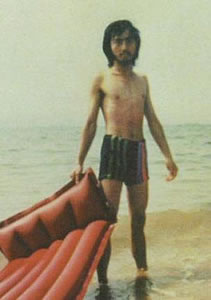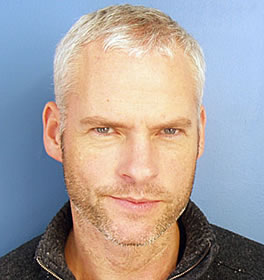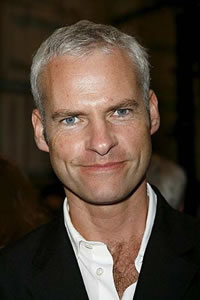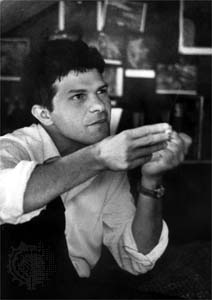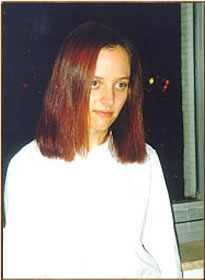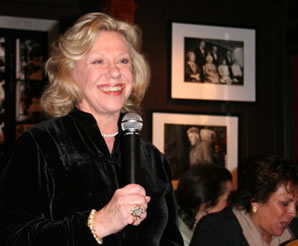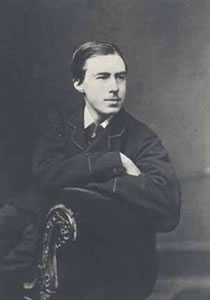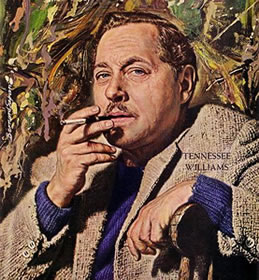De Duitse schrijver Patrick Süskind werd geboren in Ambach op 26 maart 1949. Zie ook alle tags voor Patrick Süskind op dit blog.
Uit: Drei Geschichten
“Wie war die Frage? Achsoja: Welches Buch mich beeindruckt, geprägt, gestempelt, gebeutelt, gar ‘auf ein Gleis’ gesetzt oder ‘aus der Bahn geworfen’ hätte. Aber das klingt ja nach Schockerlebnis oder traumatischer Erfahrung, und diese pflegt der Geschädigte sich allenfalls in Angstträumen zu vergegenwärtigen, nicht aber bei wachem Bewußtsein, geschweige denn schriftlich und vor aller Öffentlichkeit, worauf, so scheint mir, bereits ein österreichischer Psychologe, dessen Name mir momentan entfallen ist, in einem sehr lesenswerten Aufsatz, an dessen Titel ich mich nicht mehr mit Bestimmtheit erinnern kann, der aber in einem Bändchen unter der Sammelüberschrift “Ich und Du” oder “Es und Wir” oder “Selbst Ich” oder so ähnlich erschienen ist (ob neuerdings bei Rowohlt, Fischer, dtv oder Suhrkamp wiederaufgelegt, wüßte ich nicht mehr zu sagen, wohl aber, daß der Umschlag grün-weiß oder hellblau- gelblich, wenn nicht gar grau-blau-grünlich war), zu Recht hingewiesen hat. Nun, vielleicht ist die Frage ja gar nicht nach neurotraumatischen Leseerfahrungen gerichtet, sondern meint eher jenes aufrüttelnde Kunsterlebnis, wie es in dem berühmten Gedicht “Schöner Apollo” … nein, es hieß, glaube ich, nicht “Schöner Apollo”, es hieß irgendwie anders, der Titel hatte etwas Archaisches, “Junger Torso” oder “Uralter schöner Apoll” oder so ähnlich hieß es, aber das tut nichts zur Sache… – wie es also in diesem berühmten Gedicht von … von … – ich kann mich im Augenblick nicht auf seinen Namen besinnen, aber es war wirklich ein sehr berühmter Dichter mit Kuhaugen und einem Schnauzbart, und er hat diesem dicken französischen Bildhauer (wie hieß er doch gleich?) eine Wohnung in der Rue de Varenne besorgt – Wohnung ist kein Ausdruck, ein Palazzo ist das, mit einem Park, den man in zehn Minuten nicht durchmessen kann! (Man fragt sich beiläufig, wovon die Leute das damals alles bezahlt haben) – wie es jedenfalls seinen Ausdruck in diesem herrlichen Gedicht findet, das ich in seiner Gänze nicht mehr zitieren könnte, dessen letzte Zeile mir jedoch unauslöschlich im Gedächtnis eingegraben steht, sie lautet nämlich: “Du mußt dein Leben ändern.”

Patrick Süskind (Ambach, 26 maart 1949)
De Engels-Ierse schrijver en regisseur Martin McDonagh werd geboren op 26 maart 1970 in Camberwell, Londen, Engeland in een Iers gezin. Tijdens zijn zomervakanties in Galway, raakte McDonagh bekend met het dialect dat in deze streek van Ierland gesproken werd, hetgeen een inspiratie werd voor de toneelstukken die hij zou schrijven. Van zijn zestiende tot vierentwintigste schreef McDonagh hoorspelen en screenplays zonder succes, tot hij zich uiteindelijk waagde aan het schrijven voor theater. Hij schreef twee trilogieën in ongeveer negen maanden in 1994, alle zes toneelstukken speelden zich af in County Galway. De eerste trilogie is de Leenane trilogie, bestaande uit The Beauty Queen of Leenane (1996), A Skull in Connemara (1997) en The Lonesome West (1997). De tweede trilogie bestaat uit The Cripple of Inishmaan (1997), The Lieutenant of Inishmore (2001) en The Banshees of Inisheer – de trilogie speelt zich af op de Aran Islands aan de kust van Galway. In 2003 kwam The Pillowman uit, het eerste toneelstuk dat zich niet afspeelde in Ierland. Zijn toneelstukken hebben meerdere Tony nominaties ontvangen en zijn over de hele wereld geproduceerd. In 2006 kwam zijn eerste cinematografische werk uit, de korte film Six Shooter. In 2007 begon het filmen van In Bruges, waarvan hij zowel de schrijver als regisseur was. De hoofdrollen werden vertolkt door Colin Farrell, Brendan Gleeson en Ralph Fiennes.
Uit: The Beauty Queen of Leenane
„MAUREEN: I’ll do you some of your Complan.
MAG. Have I not had me Complan already, Maureen? I have.
MAUREEN: Sure, another one won’t hurt.
MAG. (wary) No, I suppose.
Maureen tops the drink up with tap water to cool it, stirs it just twice to keep it lumpy, takes the spoon out, hands the drink to Mag, then leans back against the table to watch her drink it. Mag looks at it in distaste.
MAG. A bit lumpy, Maureen.
MAUREEN. Never mind lumpy, Mam. The lumps will do you good. That’s the best part of Complan is the lumps. Drink ahead.
MAG. A little spoon, do you have?
MAUREEN. No, I have no little spoon. There’s no little spoons for liars in this house. No little spoons at all. Be drinking ahead.
Mag takes the smallest of sickly sips
MAUREEN. The whole of it now!
MAG. I do have a funny tummy, Maureen, and I do have no room.
MAUREEN. Drink ahead, I said! You had room enough to be spouting your lies about Ray Dooley had no message! Did I not meet him on the road beyond as he was going? The lies of you. The whole of that Complan you’ll drink now, and suck the lumps down too, and whatever’s left you haven’t drank, it is over your head I will be emptying it, and you know well enough I mean it!
Mag slowly drinks the rest of the sickly brew
MAUREEN. Arsing me around, eh? Interfering with my life again? Isn’t it enough I’ve had to be on beck and call for you every day for the past twenty year? Is it one evening out you begrudge me?“
Martin McDonagh (Camberwell, 26 maart 1970)
De Amerikaanse dichter Gregory Corso werd geboren in New York op 26 maart 1930. Zie ook alle tags voor Gregory Corso op dit blog.
Birthplace Revisited
(from Gasoline)
I stand in the dark light in the dark street
and look up at my window, I was born there.
The lights are on; other people are moving about.
I am with raincoat; cigarette in mouth,
hat over eye, hand on gat.
I cross the street and enter the building.
The garbage cans haven’t stopped smelling.
I walk up the first flight; Dirty Ears
aims a knife at me…
I pump him full of lost watches.
Poets Hitchiking on the Highway
Of course I tried to tell him
but he cranked his head
without an excuse.
I told him the sky chases
the sun
And he smiled and said:
‘What’s the use.’
I was feeling like a demon
again
So I said: ‘But the ocean chases
the fish.’
This time he laughed
and said: ‘Suppose the
strawberry were
pushed into a mountain.’
After that I knew the
war was on–
So we fought:
He said: ‘The apple-cart like a
broomstick-angel
snaps & splinters
old dutch shoes.’
I said: ‘Lightning will strike the old oak
and free the fumes!’
He said: ‘Mad street with no name.’
I said: ‘Bald killer! Bald killer! Bald killer!’
He said, getting real mad,
‘Firestoves! Gas! Couch!’
I said, only smiling,
‘I know God would turn back his head
if I sat quietly and thought.’
We ended by melting away,
hating the air!
Gregory Corso (26 maart 1930 – 17 januari 2001)
De Italiaanse, Duitstalige, schrijfster Bettina Galvagni werd geboren op 26 maart 1976 in Neumarkt. Zij bezocht het gymnasium in Bozen en studeerde medicijnen in Wenen. In 1997 verscheen haar eerste roman Melancholia, waarvoor zij in 1998 de Rauriser Literaturpreis ontving. In 2002 verscheen haar tweede roman Persona. Tegenwoordig werkt zij als arts in Parijs.
Uit: Persona
“Kleine, durchsichtige Schneeflocken fielen auf die Scheiben des Taxis, das langsam den Hügel hinauffuhr. Lori spürte die eisige Kälte, die durch irgendwelche Ritze zu kommen schien. Andererseits war ihr warm; sie war gekleidet wie nach hohem Fieber. Und so würden ihre ersten Schritte sein, die sie vom Taxi aus imaginierte: wie nach hohem Fieber.
Der Taxifahrer hielt an, fragte, ob er sie ganz hineinfahren solle, und sie verneinte.
Ohne sich noch einmal umzudrehen, ging sie am Portier im weißen Mantel vorbei, der eine Bewegung mit den Armen machte, als ob er Tauben fütterte.
Eine dünne Schneeschicht bedeckte die Spitze der kleinen Jugendstilkirche und die großen Pavillons aus Backstein. Die Vorderseite der Pavillons war hell und glasig, und durch ihren unregelmäßigen Farbton wirkte sie zerbrechlich und verschlissen wie ausgetanzte Spitzenschuhe. Ihre Hinterseiten leuchteten wie das Fell einer roten Katze.
Lori öffnete die Tür eines Pavillons und setzte sich auf die Stufen des Treppenaufgangs. Sie hörte zu, wie aus dem Inneren der Station Stimmen, Radiomusik und das Scheppern von Geschirr drangen, und betrachtete die Flügeltür, deren obere Hälfte aus eingefaßtem Glas bestand. Darin war ein grün schimmernder stilisierter Baum durch ein zartes schmückendes ebenfalls grünes Band mit weiteren Bäumen verbunden, deren Stämme alle die Farbe trüber, abgestandener Milch hatten und dahinter konnte man schemenhaft die Köpfe von Alten sehen, die über Tassen gebeugt waren, und braune Tische und etwas, das sich wie ein Triangelstab bewegte.”
Bettina Galvagni (Neumarkt, 26 maart 1976)
De Amerikaanse dichteres en schrijfster Erica Jong werd geboren in New York op 26 maart 1942. Zie ook alle tags voor Erica Jong op dit blog.
The Poetry Suit
I put on my poetry suit.
The prose falls away
like a dream I cannot remember,
the images unraveling like threads
in a cheap dress, sewn in Hong Kong
to feed the hungry mouths
of sweet-faced Chinese children.
Now I am in my poetry suit.
I zip myself into it,
pink as flesh, tight as the suit
I was born it, & looking
seamless as a perfect poem,
gleaming as the golden fleece,
slim as a stripper at the Crazy Horse Saloon,
transparent as silk stockings,
& smelling of jasmine & tea rose.
But what was that old perfume
I left in the pocket,
that cotton ball soaked
in Bal a Versailles,
that yellowing glace glove
that lacks a mate,
that fine cambric handkerchief
brown with dried blood
from an old nosebleed?
Even poetry, pure as nothing
but snow or music,
drags life along
in its hidden pockets.
Oh for an art
that is not made of words
with all their odors
& indiscretions.
Erica Jong (New York, 26 maart 1942)
De Amerikaanse dichter Robert Lee Frost werd geboren op 26 maart 1874 in San Francisco. Zie ook alle tags voor Robert Frost op dit blog.
Good Hours
I had for my winter evening walk–
No one at all with whom to talk,
But I had the cottages in a row
Up to their shining eyes in snow.
And I thought I had the folk within:
I had the sound of a violin;
I had a glimpse through curtain laces
Of youthful forms and youthful faces.
I had such company outward bound.
I went till there were no cottages found.
I turned and repented, but coming back
I saw no window but that was black.
Over the snow my creaking feet
Disturbed the slumbering village street
Like profanation, by your leave,
At ten o’clock of a winter eve.
Spring Pools
These pools that, though in forests, still reflect
The total sky almost without defect,
And like the flowers beside them, chill and shiver,
Will like the flowers beside them soon be gone,
And yet not out by any brook or river,
But up by roots to bring dark foliage on.
The trees that have it in their pent-up buds
To darken nature and be summer woods —
Let them think twice before they use their powers
To blot out and drink up and sweep away
These flowery waters and these watery flowers
From snow that melted only yesterday.
Robert Frost (26 maart 1874 – 29 januari 1963)
Robert Frost in New Hampshire door James Chapin
De Engelse dichter Alfred Edward Housman werd geboren op 26 maart 1859 in Fockbury, Worcestershire. Zie ook alle tags voor A. E. Housman op dit blog.
ILLIC JACET
Oh hard is the bed they have made him,
And common the blanket and cheap;
But there he will lie as they laid him:
Where else could you trust him to sleep?
To sleep when the bugle is crying
And cravens have heard and are brave,
When mothers and sweethearts are sighing
And lads are in love with the grave.
Oh dark is the chamber and lonely,
And lights and companions depart;
But lief will he lose them and only
Behold the desire of his heart.
And low is the roof, but it covers
A sleeper content to repose;
And far from his friends and his lovers
He lies with the sweetheart he chose.
When I would muse in boyhood
When I would muse in boyhood
The wild green woods among,
And nurse resolves and fancies
Because the world was young,
It was not foes to conquer,
Nor sweethearts to be kind,
But it was friends to die for
That I would seek and find.
I sought them and I found them,
The sure, the straight, the brave,
The hearts I lost my own to,
The souls I could not save.
They braced their belts around them,
They crossed in ships the sea,
They sought and found six feet of ground,
And there they died for me.
A. E. Housman (26 maart 1859 – 30 april 1936)
De Amerikaanse dichter en schrijver Tennessee Williams (eigenlijk Thomas Lanier Williams) werd geboren in Columbus, Mississippi, op 26 maart 1911. Zie ook alle tags voor Tennessee Williams op dit blog.
Uit: A Streetcar Named Desire
” MITCH. She wants me to be settled down before the — [His voice is hoarse and he clears his throat twice, shuffling nervously around with his hands in and out of his pockets]
BLANCHE. You love her very much, don’t you?
MITCH. Yes.
BLANCHE. I think you have a great capacity for devotion. You will be lonely when she passes on, won’t you? [Mitch clears his throat and nods] I understand what that is.
MITCH. To be lonely?
BLANCHE. I loved someone, too, and the person I loved I lost.
MITCH. Dead? [She crosses to the window and sits on the sill, looking out. She pours herself another drink] A man?
BLANCHE. He was a boy, just a boy, when I was a very young girl. When I was sixteen, I made the discovery — love. All at once and much, much too completely. It was like you suddenly turned a blinding light on something that had always been half in shadow, that’s how it struck the world for me. But I was unlucky. Deluded. There was something different about the boy, a nervousness, a softness and tenderness which wasn’t like a man’s, although he wasn’t the least bit effeminate looking — still — that thing was there … He came to me for help. I didn’t know that. I didn’t find out anything till after our marriage when we’d run away and come back and all I knew was I’d failed him in some mysterious way and wasn’t able to give the help he needed but couldn’t speak of! He was in the quicksands and clutching at me — but I wasn’t holding him out, I was slipping in with him! I didn’t know that. I didn’t know anything except I loved him unendurably but without being able to help him or help myself. Then I found out. In the worst of all possible ways. By coming suddenly into a room that I thought was empty — which wasn’t empty, but had two people in it … the boy I had married and an older man who had been his friend for years …
[A locomotive is heard approaching outside. She claps her hands to her ears and crouches over. The headlight of the locomotive glares into the room as it thunders past. As the noise recedes she straightens slowly and continues speaking.]
Afterward we pretended that nothing had been discovered. Yes, the three of us drove out to Moon Lake Casino, very drunk and laughing all the way.”
Tennessee Williams (26 maart 1911 – 25 februari 1983)
De Duitse schrijver en criticus Artur Hermann Landsberger werd geboren op 26 maart 1876 in Berlijn. Hij promoveerde weliswaar in de rechten, maar was vooral een succesvolle schrijver van romans. In de jaren twintig verscherpte hij zijn toon. In werken als Wie Satan starb (1919), Das Blut (1920), en vooral in zijn als reactie op Hugo Bettauers publicatie Stadt ohne Juden (1922) geschreven Berlin ohne Juden (1925) hield hij de maatschappij een bepaald niet vleiende spiegel voor. De laatse roman was eigenlijk bedoeld als satire op de antisemitische agitatie, maar kwam de latere realiteit op een griezelige wijze nabij. Als maatschappijcriticus werd Landsberger door de Nazi’s vervolgd. Om daaraan te ontkomen pleegde hij in 1933 zelfmoord.
Uit: Berlin ohne Juden
Die jüdische Bevölkerung entwickelte jetzt eine fieberhafte Tätigkeit. Verständlich, daß alles in Berlin zusammenströmte. Die Zeitungen mit Verkaufsinseraten aus dem ganzen Reich erschienen im Umfang von dreißig bis fünfzig Seiten. Man konnte alles, was schwer mitzunehmen war, vor allem also Häuser, Möbel, Gardinen, Teppiche, Kronen, Porzellane, Bilder, Bücher, Wagen, Geräte, Pferde, Haustiere, Weine, Konserven und anderes mehr zu lächerlichen Preisen kaufen. Die christliche Bevölkerung kaufte sich satt. Die Leute verkauften ihre Papiere und hoben von den städtischen Kassen ihre Ersparnisse ab. Die Billigkeit reizte und die Freude, den Juden, von denen sie sich sonst übervorteilt glaubten, nun ihrerseits für das, was sie ihnen abkauften, Preise vorzuschreiben, die bis zur Hälfte, oft bis zu einem Zehntel hinter dem wirklichen Wert zurückblieben. Natürlich, sie überkauften sich, und als die Juden raus waren, fehlte ihnen das Geld für das Nötigste. Meist wußten sie gar nichts mit dem Geramschten anzufangen. Was sollte man mit einer Villa vor den Toren Berlins anfangen, wenn man Mühe hatte, seine teuere Wohnung in der Stadt zu halten, was mit einem Auto, wenn man sich das Geld für Chauffeur und Benzin vom Munde absparte, was mit echten Persern in Größen von 6 x 5 und 5 x 4, wenn die Zimmer nur 4 x 3 und 3 x 2 groß waren, was mit Handfiletgardinen für 24 Fenster, wenn man nebbich – ach, man brauchte jetzt so gern die jüdischen Worte! – nur fünf Fenster Front hatte. Die Kronen paßten nicht zu den Möbeln, die Bilder nicht zu den Tapeten, und in den bei der Eile natürlich im ganzen gekauften Bibliotheken fand man statt der gesuchten Rudolfe (Herzog und Stratz) Juden, wie Wassermann, Hirschfeld und Georg Hermann, ja, manchmal stieß man sogar auf Bücher in hebräischer Sprache, vor denen man sich bekreuzigte, sofern man nicht in Krämpfe fiel.
Alles das aber bemerkte man leider erst, als der große Taumel sich legte und die Juden schon draußen waren. Sonst hätte man sie gewiß des Wuchers bezichtigt und sie gezwungen, die Geschäfte rückgängig zu machen.“
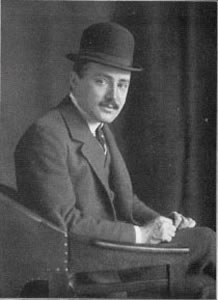
Artur Landsberger ( 26 maart 1876 – 4 oktober 1933)

